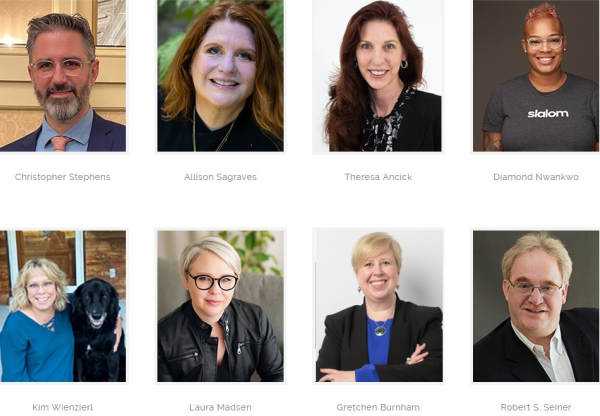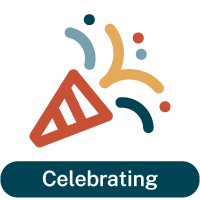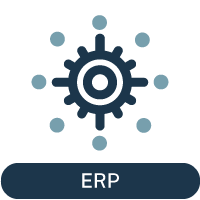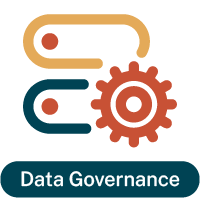Now in its eighth year, DATAVERSITY’s Enterprise Data Governance Online (EDGO) is a popular industry event. First San Francisco Partners has been connected to EDGO since its early days, and it’s become a welcoming reminder that a new year is kicking off.
On January 25, 2023, our Principal Consultant Gretchen Burnham led one of EDGO 2023’s educational sessions. Her topic, Using Data Governance to Tackle Tough Data Problems, resonates with many data management professionals who struggle to fix what’s broken in how their organizations manage, define and access business data.
EDGO’s industry expert presenters delivered six virtual presentations throughout the day, covering:
- Data governance trends that drive growth, those that could distract and how to tell the difference
- How to identify data definition misalignments and conflicts and use a repeatable process to drive definition alignment (Gretchen’s session)
- Measuring the business value of governance, with ideas and examples of how to measure beyond the benefits from associated projects
- Everything executives need to know about “why data governance” (the keynote talk that featured a chief data officers panel)
- How to build a governance roadmap, including an outline of the four stages of data governance development
- How data quality ownership can mitigate quality issues and how to empower employees with the mindset and tools to ensure a quality-first culture
Governance’s Role in Tackling Data Problems

Gretchen Burnham puts her decades of data management experience to great use for our valued clients. Her expertise spans all aspects of data management, including governance, data stewardship, metadata management and data definitions/conflict resolution. Gretchen excels at bringing solutions that bridge the business, technical, strategic and implementation aspects of data management — and we’re glad she’s part of our incredible team.
We’re recapping a few sections of Gretchen’s talk for you. Her recorded session includes her full remarks and an interesting Q&A session, where audience members asked questions like this: When implementing a data glossary, what is the best way to handle differing data definitions across a business, and do you harmonize first or show the ugly truth, then harmonize?
How to recognize “thorny” data problems in your organization
First, it’s critical to take a step back and understand why data problems exist in the first place. Every organization makes decisions about how it operates, the data it uses, how each functional area works and how everyone works together.
When we look at how the organization works and what it sells, these are some of the questions to ask:
- What products do we sell?
- What’s selling now, and what will we sell next year?
- Who has financial accountability for product inventory?
- How are products grouped?
Asking ourselves key questions like these helps us understand what data is needed. And while these questions are specific to the product space, similar questions are all over your business. We actually don’t even need to think of them as questions. They’re the work of a business that decides how it will do things. Then, when we think about data, data is the way we record those business decisions and make them operational within the organization.
Anytime we look at a table and think “data,” we need to remember it’s not just a table — it’s the business decisions encoded in the system. At the heart of what we need to do to solve data problems is to start with the business truth about data, so we can effectively problem-solve further down the road.
Role of the Data Governance Office
A Data Governance Office (DGO) or those charged with organizational data management should look at business data from an architectural perspective. This doesn’t mean the DGO team should all become data modelers. Think big picture, like a building or bridge architect, who considers the full functional and design requirements to complete the structure. (A bridge-designing friend of Gretchen’s inspired this analogy.)
Another important responsibility of the DGO is being advocates for data. Everyone in the organization will be an advocate for their own business processes and data in their part of the business. And that’s what they should be doing. But who are advocates for all data? The DGO. They’re the ones who advise the business about how it can and can’t use data. Their focus will be on building trusted and high-quality, readily available data across the organization and championing how the business comes together to manage its data. The DGO’s work spans all business functions, and they work to influence and align stakeholders for the enterprise’s benefit.
Repeatable Process for Resolving Data Problems

If you were unable to participate in this year’s EDGO, you can still register to get access to the recorded talks.
Without fail, people from the business will come to the DGO and say they have a thorny data problem and want the group to solve it for them. The DGO’s efforts will include fully understanding the problem before the organization begins any remediation work.
Before a DGO solves a specific problem, it will be vital to understand certain organizational aspects by asking questions like:
- Who makes decisions about data and the associated business processes?
- What technologies are used to house, manage and access data?
- Is there a formal or informal process for data-related decision-making?
- Is there an individual or area with political clout who could do an end run around problem-solving efforts, which could jeopardize improvements?
Data problems represent real business friction and require meaningful changes to resolve them. These changes frequently impact business processes and organizational assignments and technologies.
(Gretchen’s full presentation includes details on a four-step process to resolve a data definition conflict, a common thorny issue. The steps include gathering the right people, analyzing the issue, creating resolution options and approving and implementing the resolution. Register here for access to Gretchen’s recording and slides.)

EDGO 2023, the educational program from DATAVERSITY, featured these speakers.
Information on EDGO 2024
DATAVERSITY is now making plans for next year’s EDGO. When you subscribe to DATAVERSITY’s periodic updates, you’ll stay in the know about upcoming events, conferences and online educational training and more.
And speaking of training, FSFP is a frequent contributor to DATAVERSITY’s Training Center. We developed three educational learning plans, including Optimizing Your Data Catalog, with course instructors Gretchen and Becky Lyons. The seven-course training covers all data catalog facets essential to organizations, including governance, change management, metadata usage, communication and planning, structural components, metrics and measurements, catalog best practices and roadmap development.
Learn more about FSFP’s data catalog training here —and if you’re interested in purchasing it or any educational program, use our discount code FSFP to save 20% on checkout.
See you online at the 2024 EDGO … and if you’re interested in using data governance to tackle your thorny data problems, get in touch and let us know how we can help.




